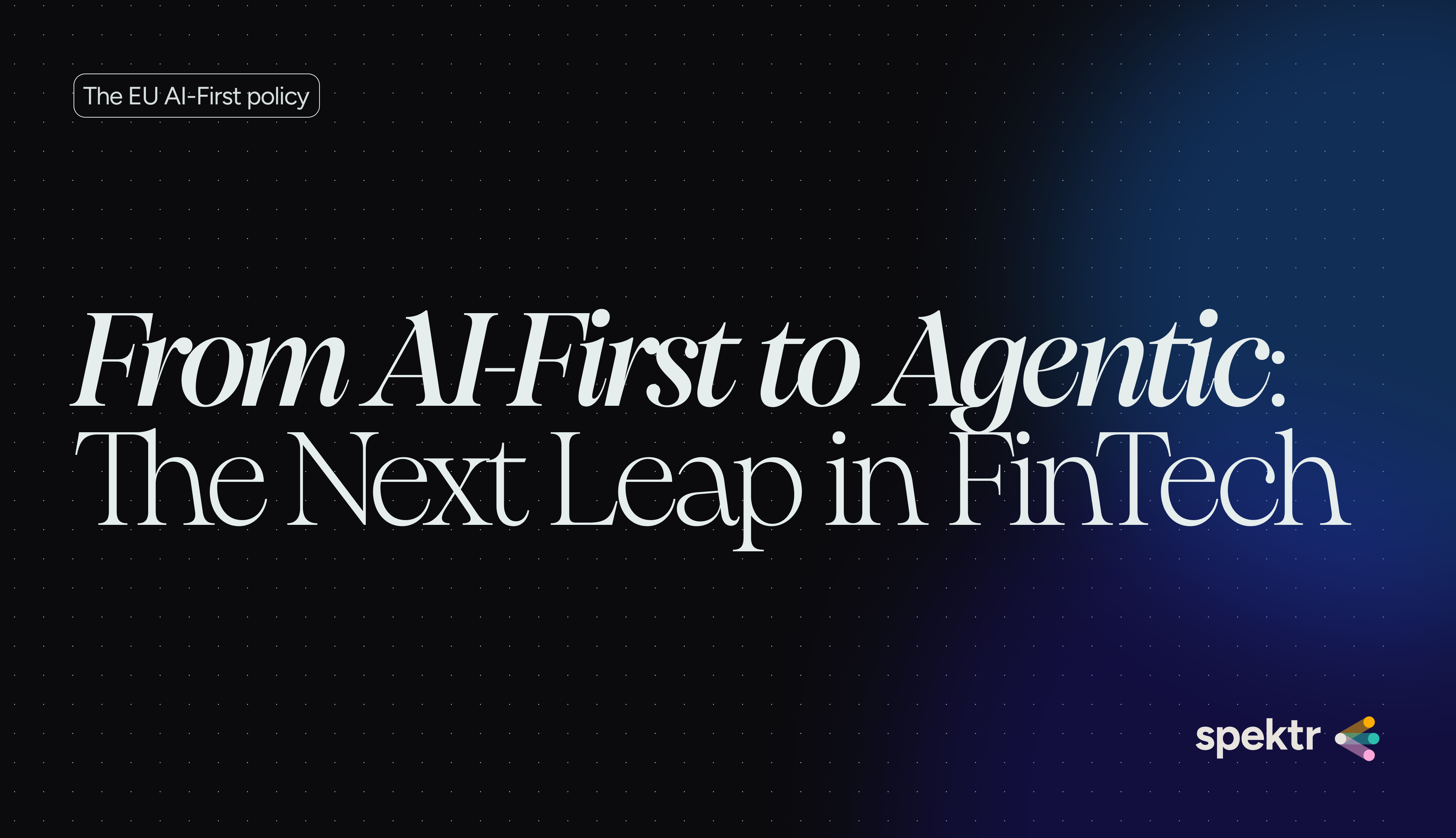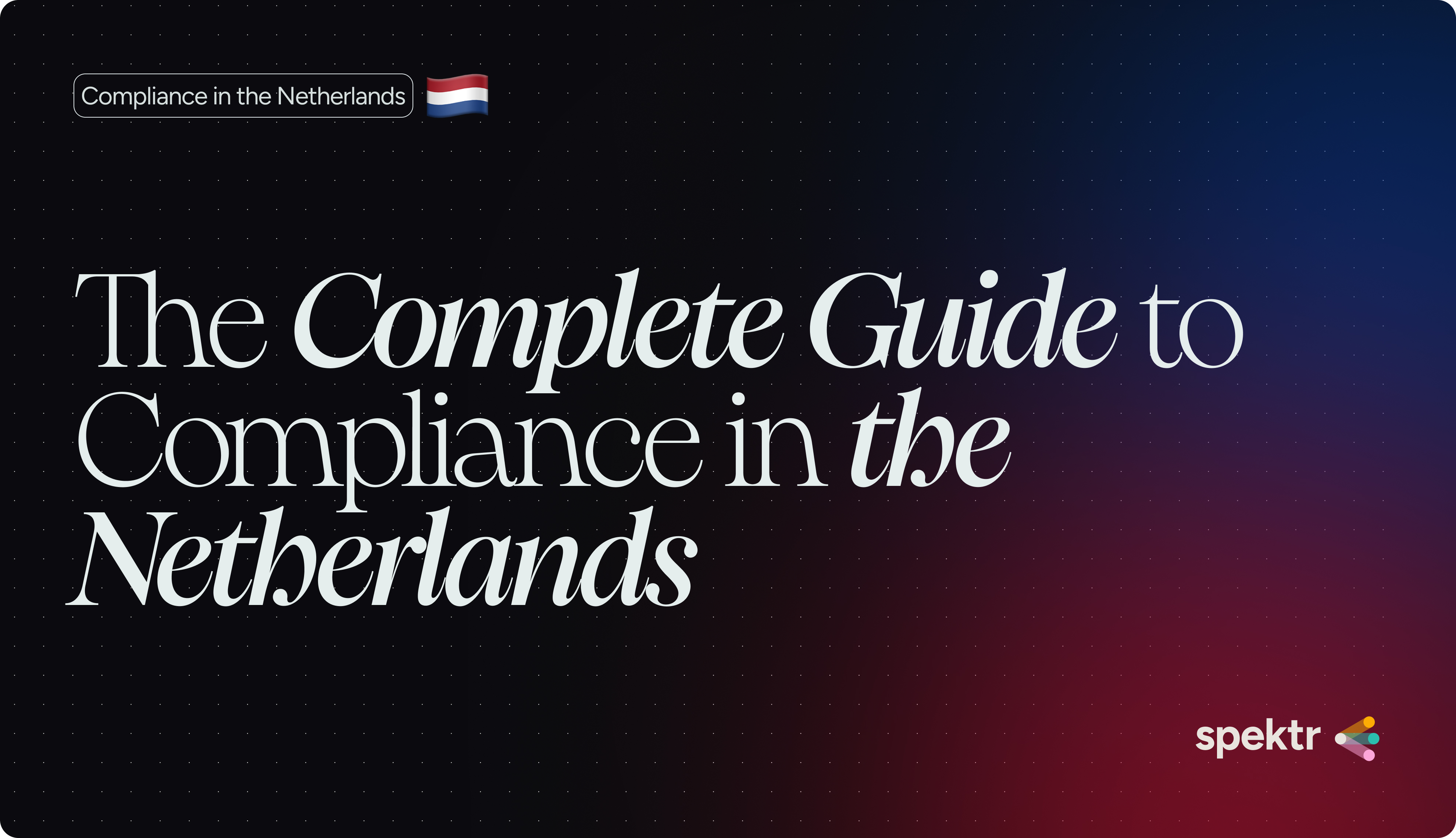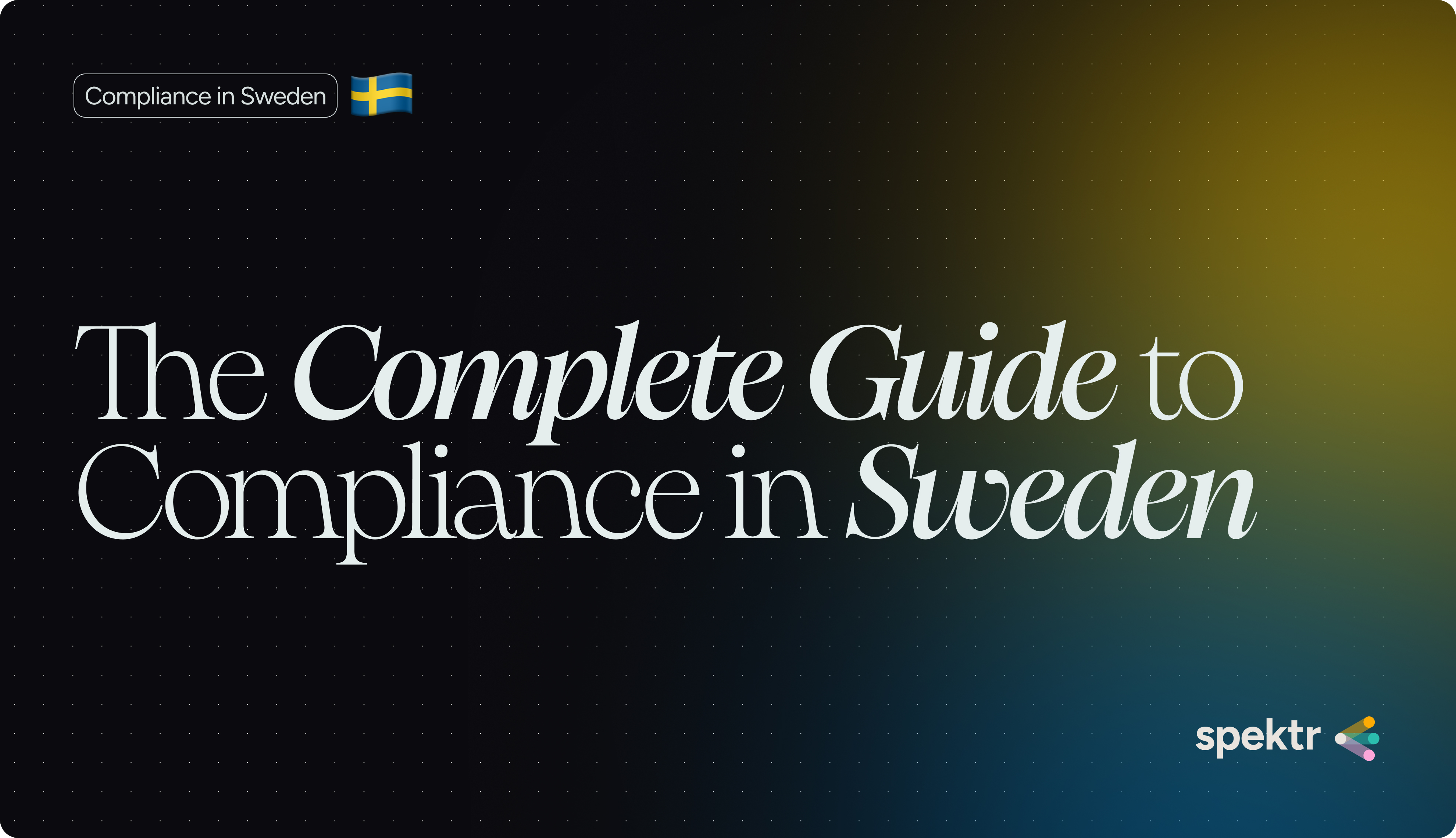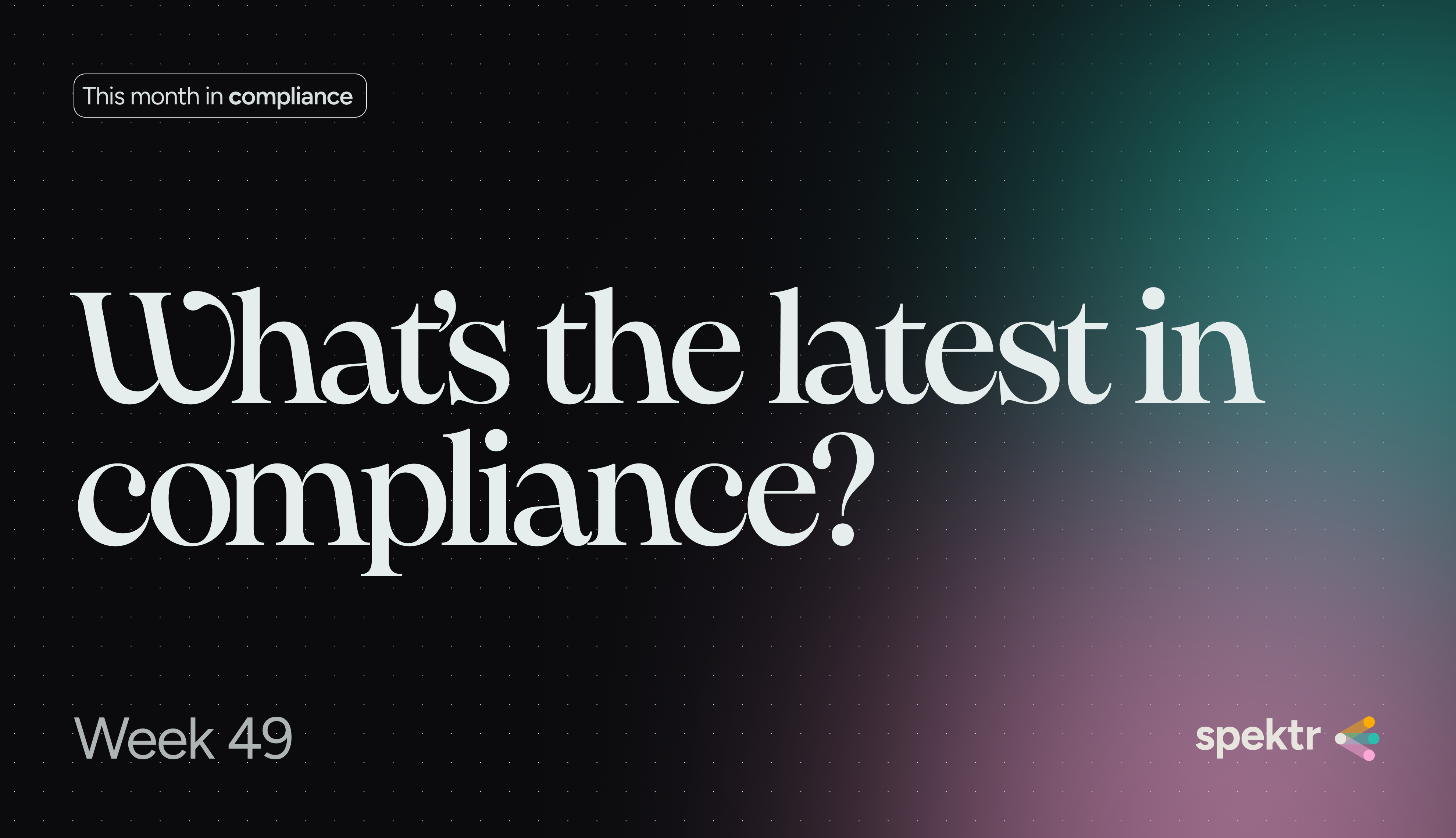From AI-First to Agentic: The Next Leap in FinTech
Try the platform

Share the article
TL;DR
Discover how the EU’s AI-First policy and €1B Apply AI strategy are driving agentic AI adoption across industries, and why FinTech must urgently adapt to AI-driven compliance, fraud detection, and third-party risk management.

A New Era of Autonomous Intelligence
The European Commission’s new AI-First policy marks more than a shift in digital strategy; the €1B Apply AI Investment signals a new era of agentic AI, where intelligent, autonomous systems are not just supporting decisions but actively driving speed, efficiency and results.
The goal is ambitious yet clear: to raise AI integration from just 13.5% today to 75% of EU businesses, spanning the 10 largest market sectors such as manufacturing, healthcare, transport, and energy.
While financial services are not yet part of the initial focus sectors, it is as a sector on its own also placed on the European Commission’s Roadmap: the implications for the industry are immediate. As these foundational industries adopt AI-first practices, the FinTech ecosystem will inevitably need to evolve in tandem - particularly in compliance, payments, and risk management - where cross-sector data and digital infrastructure converge. For financial institutions, this signals a coming inflection point: AI adoption will soon move from optional innovation to operational necessity.
Why FinTech Cannot Afford to Wait
The finance sector sits at the crossroads of opportunity and obligation. On one hand, AI offers unprecedented efficiency in fraud detection, customer due diligence, and regulatory reporting. On the other hand, AI itself has become a source of new threats.
Recent data from ACFE and Experian (2025) shows that:
- AI-driven biometric fraud detection systems rose by nearly 45% across finance and payment networks this year.
- AI-generated scams now account for over half of digital financial fraud, with deepfake videos, voice cloning, and synthetic identities leading the wave.
In short: AI is both the sword and the shield. The only way to stay protected is by deploying AI that can detect and defend against AI-powered attacks.
Agentic AI: From Reactive to Proactive Compliance
Traditional compliance frameworks are inherently reactive; they flag suspicious activity after it happens. Agentic AI, however, enables a shift to proactive detection.
These systems autonomously:
- Monitor transactions and communications for irregularities in real time.
- Identify potential regulatory breaches before they occur.
- Learn and adapt from evolving fraud patterns to enhance accuracy over time.
The result is a compliance environment that evolves as fast as the risks themselves to transform oversight from a bottleneck into a business advantage.
From Direct to Indirect Liability: The Expanding Perimeter of Risk
The shift from direct to indirect liability is real. With our current hyperconnected financial ecosystem, your accountability no longer ends with your internal operations; it extends to every partner, vendor, and service provider in your network.
Regulators and customers alike now expect organizations to maintain visibility across their entire value chain, making holistic third-party risk management essential for future preparedness and business continuity.
This means financial institutions must:
- Map and monitor risks across all third-party relationships.
- Establish clear accountability for vendor performance, data handling, and compliance breaches.
- Integrate AI-driven monitoring tools that can identify emerging threats across the ecosystem in real time.
Managing this web of interdependencies is a cornerstone of financial and data resilience. In an era where a single supplier failure or compromised API can trigger cascading disruption, AI-powered third-party risk intelligence becomes a critical safeguard for stability and trust.
What This Means for Financial Leaders
The transition to an AI-First world requires rethinking how financial systems are built, integrated, and governed.
To thrive in the age of agentic AI, finance leaders should:
- Integrate AI into the core of financial operations, not just at the periphery.
- Automate compliance and risk workflows to reduce manual errors and improve auditability.
- Invest in AI governance frameworks that ensure transparency, accountability, and ethical deployment.
- Collaborate with technology partners (like spektr) to modernize onboarding, risk management, and reporting pipelines.
Looking Ahead: The Intelligent Future of Finance
The question is no longer if AI will reshape FinTech, but when. As Europe accelerates toward its AI-First future, companies that build trustworthy, autonomous systems today will define the industry standards of tomorrow.
At spektr, we believe that the next frontier of financial innovation lies in AI-driven compliance and decision intelligence - empowering organizations to detect risk before it escalates and to build resilience against AI-powered fraud.
So, is your financial system ready for the agentic revolution?




